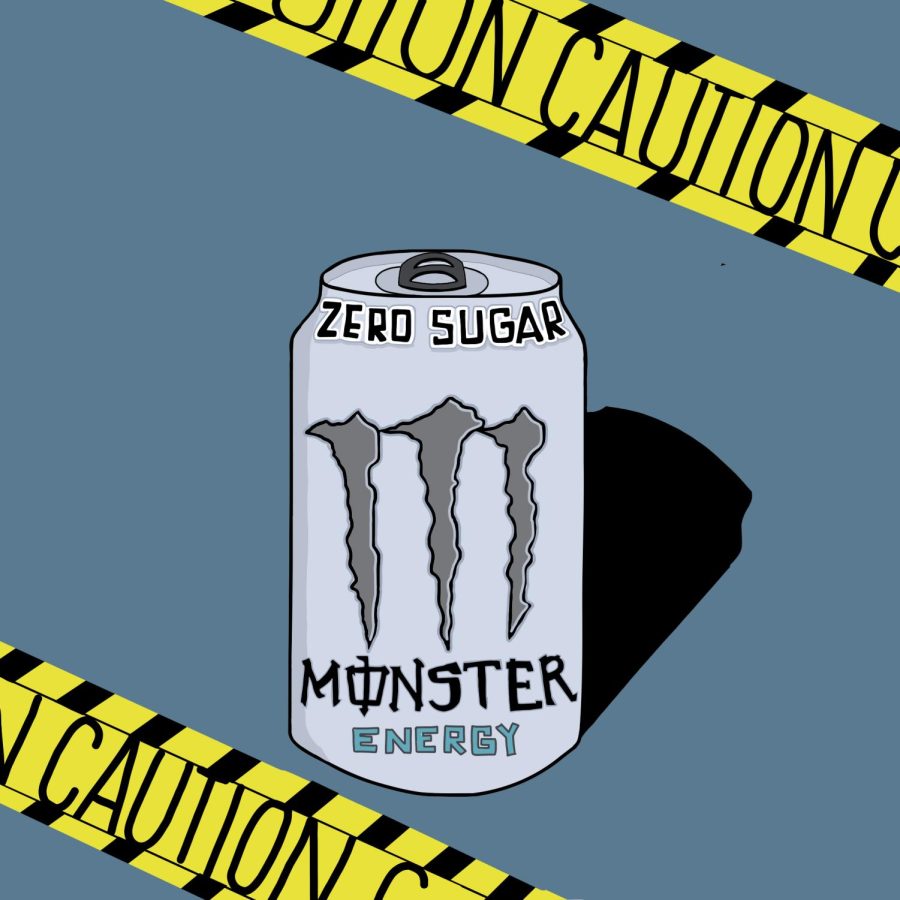Red Bull gives you high blood pressure, not wings
The masked dangers behind energy drinks
Being aware of the dangers behind popular energy drinks can save you from numerous long-term health issues.
November 18, 2022
With a sweet flavor and a burst of energy, you’d think those thirst-quenching, carbonated cans of adrenaline would be a good thing for your body when you’re feeling down and drowsy. The artificial flavors and heaps of caffeine give you the strength to make it through the day when it feels like an impossible task. Energy drink consumers, including myself, can be easily compelled to think these drinks are safe for their bodies. However, the rather hidden truth behind energy drinks is that regular intake can cause life-threatening, long-term effects and can even cost you your life.
Concocted with ingredients like taurine, sugar, and ginseng, these caffeine-crazy beverages serve the purpose of providing high energy levels as well as mental focus. But, it’s hard to tell if that’s really what these energy drinks are doing. With an overly excessive amount of caffeine, one drink can range from 80-500mg of caffeine, while a cup of coffee contains an average of 95 mg. Beyond common disbelief, there is such a thing as “too much caffeine.” For reference, according to the U.S. Food and Drug Administration, 400 mg of caffeine is a safe (but not suggested) intake amount. 400 mg of caffeine is equal to about four to five cups of coffee, which also means it’s equal to a single “Bang” energy drink. See the difference?
This extreme amount of caffeine packed into one beverage comes with various possible health issues. For instance, high caffeine intake can cause ‘acute caffeine intoxication,’ which is a fancy name for vomiting, seizures, increased heart rate, and much more. Sounds pleasant, doesn’t it? Regular consumption of energy drinks can cause all sorts of mental and physical issues. Heart failure, anxiety, insomnia, high blood pressure, heart palpitations, dehydration; the list goes on and on. The number of energy drink-related hospitalizations has even doubled from 10,068 to 20,783 cases over a five-year span according to “The Trouble with the Energy Drink Related ER Visits.” This comes to show just how dangerous these drinks can be.
With even just a glance at these glorified cans of death, a warning label is easily spotted. These labels serve a grave purpose in showing that the abounding amount of caffeine in these drinks isn’t recommended for consumers under the age of 18. Yet, adolescents ages 12-17 are their highest-ranking consumers. As reported in “The dangers of energy drinks,” from 2004 to 2018, 34 deaths have been connected to frequent energy drink intake, most of which are young adults and teens. Even though it may be rare, energy drinks can kill, which puts every user at risk.
Both the mental and physical issues that come along with energy drink consumption make you wonder how worth it they really are. Even though they may be tasty and give you a temporary burst of energy, there are many other natural alternatives. All sorts of naturally decaffeinated teas and fruit juices are available at the same places you’d get an energy drink. Even drinking more water, eating well, exercising, and connecting with nature can give you the same alertness and power you feel after drinking an energy drink (without the high blood pressure of course).
When it comes down to heart failure or a healthy lifestyle, detoxing your body of all the unhealthy supplements that come along with energy drinks is the only right choice. Finding a healthy replacement for daily energy can save you from a lifetime of health issues and ensure that you feel strengthened and empowered throughout the day.







